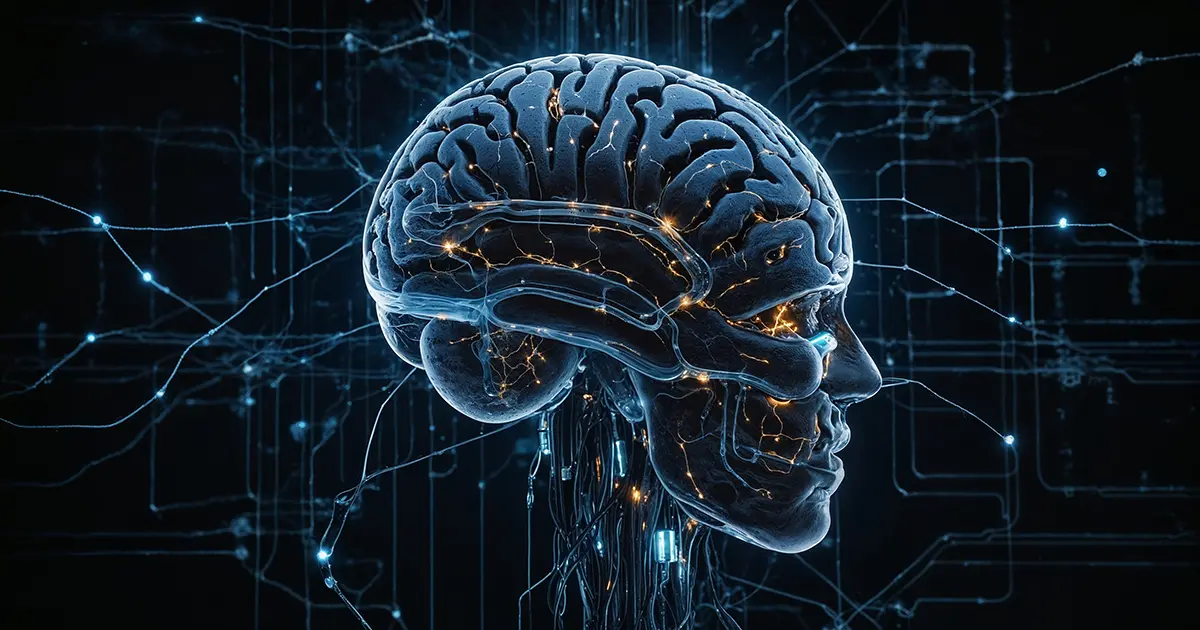Simple Steps to Secure Your Data in an AI-Driven World
In the age of artificial intelligence, protecting personal information is more important than ever. This article explores common data theft scenarios, essential security measures, and how AI plays a critical role in protecting your information. Discover specific tools and applications to keep your data safe in today’s digital world.
Common data theft incidents
Data theft is becoming increasingly common, affecting millions of people around the world. Common incidents include phishing scams, where attackers trick individuals into revealing personal information, and malware attacks that infiltrate devices to steal data. In addition, breaches at large organizations can expose sensitive information, resulting in identity theft and financial loss for ordinary people. For example, a phishing email pretending to be from a trusted bank can trick a user into entering their account information, which is then harvested by cybercriminals. Similarly, malware hidden in seemingly innocuous downloads can silently collect data from a user’s device, compromising their privacy and security. High-profile breaches such as the Equifax data breach exposed millions of personal records, demonstrating the widespread impact of data theft.
Understanding the basics of data security
Data security is about protecting personal information from unauthorized access and breaches. It starts with understanding the types of data you have, such as financial information, personal identifiers, and online activity. Implementing strong passwords, regularly updating software, and being cautious about sharing information online are basic steps to improving your data security. For example, using a unique password for each online account reduces the risk of compromising multiple accounts if one password is compromised. In addition, enabling automatic updates ensures that your devices are protected against the latest security vulnerabilities. Understanding the privacy settings on social media platforms and being mindful of the information you share can further protect your personal information.
How AI improves data security
Artificial intelligence significantly improves data security by detecting and responding to threats faster than traditional methods. AI systems can analyze massive amounts of data to identify unusual patterns that may indicate a breach. Machine learning algorithms are constantly improving to better predict and prevent potential security threats, ensuring that your data remains protected. For example, AI can monitor network traffic in real time to detect suspicious activity, such as an unusual login from a different geographic location, and automatically trigger security protocols to prevent unauthorized access. In addition, AI-driven encryption techniques can protect data by making it extremely difficult for unauthorized parties to decipher the information, even if they do manage to access it. Tools such as Darktrace and CrowdStrike use AI to provide advanced threat detection and response capabilities.

Practical steps to keep your information safe
Keeping your personal information safe doesn’t have to be complicated. Here are some practical steps you can take:
Implementing these steps can significantly reduce the risk of data theft. For example, two-factor authentication requires not only a password but also a second verification method, such as a text message code, making it harder for attackers to gain access even if they have your password. Applications like LastPass or 1Password can help manage and generate strong passwords, while services like Google Authenticator or Authy can make setting up 2FA easier.
Essential security tools
To further protect your data, consider using the following tools:
- Antivirus software: Protects your devices from malware and viruses by scanning and removing malicious software. Recommended options include Norton Antivirus, Bitdefender, and Kaspersky.
- VPN services: Encrypt your Internet connection to protect your online activities, especially on public networks. Some trusted VPNs include ExpressVPN, NordVPN, and CyberGhost.
- Password managers: Help you create and store strong, unique passwords for all your accounts, reducing the risk of password reuse. Popular options include LastPass, 1Password, and Dashlane.
- Firewall protection: Acts as a barrier between your device and potential threats from the Internet. Windows Defender Firewall and ZoneAlarm are trusted options.
- Encryption tools: Protect your sensitive data by converting it into a code that can only be deciphered with the right key. VeraCrypt and BitLocker are great tools for encrypting data.
Using these tools in combination provides a robust defense against various types of cyber threats. For example, a VPN not only hides your IP address, but also encrypts your data, making it difficult for hackers to intercept your online activities. Similarly, antivirus software like Bitdefender provides real-time protection against emerging malware threats to keep your devices safe.
The role of AI in everyday security
AI isn’t just for large organizations; it’s also empowering individuals to protect their data. AI-powered applications can monitor your online presence, alert you to suspicious activity, and automate security tasks, making it easier for anyone to maintain robust data protection without extensive technical knowledge. For example, AI-powered antivirus programs such as Norton 360 and Sophos Home can learn to detect and block new types of malware without requiring manual updates. In addition, AI can help you securely manage and rotate passwords with password managers that use machine learning to detect weak or reused passwords, ensuring that your accounts remain protected from unauthorized access. Personal security assistants, such as Cortana and Google Assistant, also use AI to help manage security settings and provide alerts about potential threats.

Overcoming fear of technology
Many people fear navigating the digital world, but understanding data security doesn’t require advanced technical skills. By following simple guidelines and using easy-to-use AI tools, anyone can protect their personal information. Our materials are designed to make learning about AI and privacy accessible and easy. For example, step-by-step guides and tutorials can help users set up two-factor authentication or install antivirus software without feeling overwhelmed. In addition, community support and resources, such as forums and customer service from tool providers like Norton or ExpressVPN, can provide the support needed to build confidence in using technology safely. Simple educational resources, such as online courses from Coursera or Khan Academy, can also help demystify complex security concepts.
Expand your knowledge in easy steps
Even if you’re new to technology, our resources can help you expand your understanding of artificial intelligence and data security. We explain complex concepts in easy-to-understand language so you can confidently navigate and protect your digital life. With consistent learning, you’ll gain the confidence to use AI technologies safely. For example, our articles break down how AI algorithms work to detect fraud, making it easier for you to see the benefits of AI in everyday security. In addition, interactive content and visual aids, such as infographics and video tutorials, enhance your learning experience, making it more engaging and effective. Tools like Duolingo for language learning and Codecademy for coding can also help you build basic technical skills that complement your understanding of AI and privacy.
Building a safe digital future
Creating a safe digital environment is a shared responsibility. By staying informed and adopting best practices, you can help create a safer online community. Encouraging friends and family to follow data security measures can strengthen your defenses against cyber threats. In addition, staying abreast of the latest advances in AI and cybersecurity ensures that you’re prepared for emerging challenges. For example, understanding how AI can predict and mitigate new types of cyberattacks allows you to take proactive steps to secure your data. Engaging with trusted sources like the Cybersecurity & Infrastructure Security Agency (CISA) or Krebs on Security can keep you informed about the latest threats and protection strategies.


















